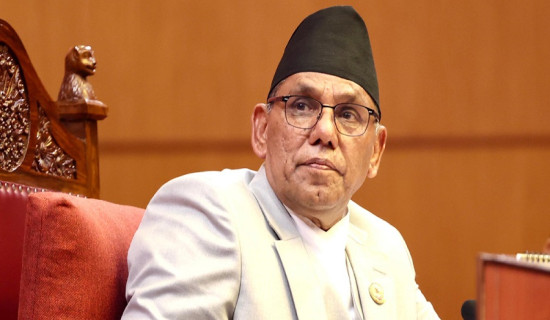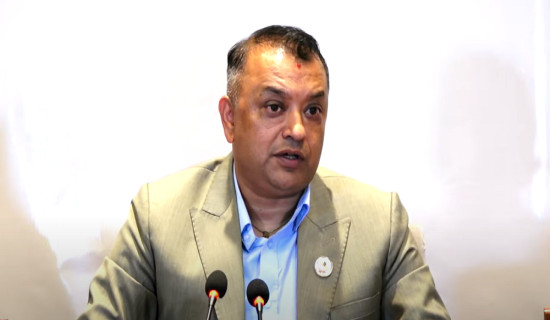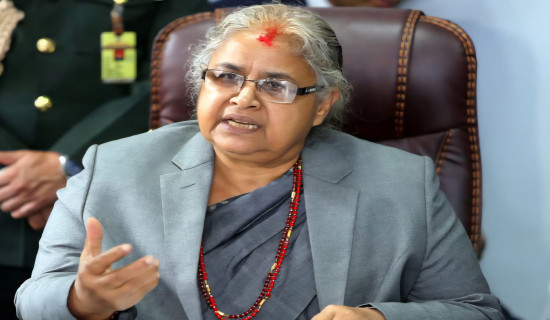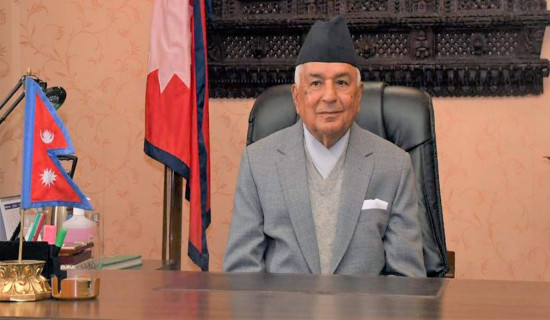- Thursday, 19 February 2026
Relevance Of Earth Day
Aashish Mishra
Friday, April 22, was Earth Day – the 52nd Earth Day to be exact; the 52nd year global leaders came together to pay lip service to the cause of environmental conservation,
pollution reduction et cetera and et cetera then promptly went about forgetting it and focusing on the “more pressing issues” at hand.
It has been like this from the start. There has always been something more pressing and more urgent than our planet that required our attention. Even in 1970, on the day of the very first Earth Day, American investigative journalist Isidor Feinstein Stone criticised Senator Gaylord Nelson, the person who launched Earth Day, as a man propagating a con.
“This is a beautiful snow job,” he said, “Designed to distract attention from government military and spending policies.”
“The country is slipping into a wider war in Southeast Asia and we’re sitting here talking about litterbugs.”
But Nelson was not just talking about litterbugs. He was talking about the planet we all live in, the planet that is the only feasibly inhabitable world we have to date and a planet that is fast swerving toward the edge of the precipice.
Policymakers at the time and now claim to stand with Senator Nelson’s view but have
unfortunately seemed to internalise Journalist Stone’s opinions because, as mentioned above, they always have their hands full with something other than the foundation for the survival of our species.
After the war in Vietnam, that Stone was referring to, ended, the focus shifted to the increasingly intensifying Cold War, then to the Afghanistan War, then the collapse of the Soviet Union and the integration of the post-Soviet states into the mainstream world order, then global terrorism, then the COVID-19 pandemic and now the Russian invasion of Ukraine. Meanwhile, the climate crisis rages on.
The air we breathe grows more toxic by the day, the water we drink seems to have more chemicals in it than actual water molecules and the less said about the food we eat the better. Our planet is dying and it is killing us with it and yet, it is still not a sufficiently important enough issue to be prioritised by our governments and our societies.
To borrow Stone’s phrase, “Our home is on fire and we’re sitting here talking about the bedbugs we think have infested our mattress.”
This is a clichéd phrase but one that warrants repetition. Without Earth, there is nothing.Everything we have ever done and will ever do and everyone we have ever known and will ever know is this third rock from the sun. Without Earth, there is no us. Our planet concerns all of us and thus, all of us should work together to protect it.
We are all residents of a common home that we ourselves seem hell-bent on dismantling. We must change our collective habits, if not to reverse the
damage already done then to at least prevent further destruction.
Bodies like the United Nations must lead international efforts and make nations do their part whether by incentives or by pressure. There is absolutely no time to lose because every second we delay is a second closer to the apocalypse.
The word ‘apocalypse’ may seem like an exaggeration. Some may even call it fear mongering. But it is not untrue. We are getting a glimpse of the future that awaits us.
Rains these days are either droughts or floods, hurricanes are getting stronger than ever, tornadoes are touching down in places that had never
even conceived of such a weather phenomenon, let alone seen it (remember the storm that swept across Bara and Parsa on March 31, 2019?).
Things are going to get worse if we do not take the right action now.
















